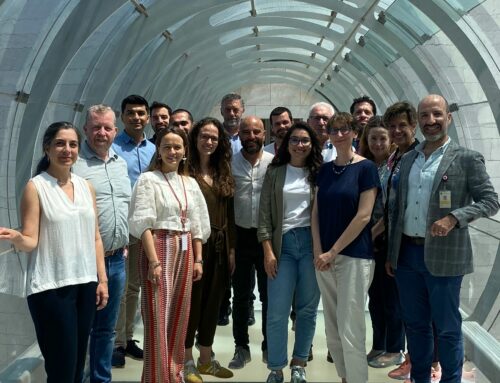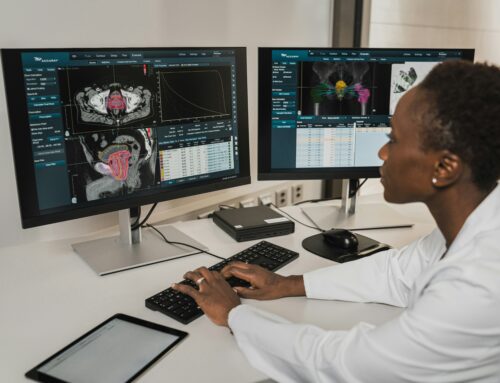In FAITH, we are preparing to launch the FAITH observational study; this means observational trials held at the hospital pilot sites, where doctors and patients test the FAITH prototype. For this, we will be using the initial alpha version of the FAITH solution, consisting of an app for cancer survivors and a web solution for clinicians. Their feedback will then help us to improve the requirements gathering and concept refinement.
The observational trials
For the next year, we will use this alpha version to gather data from lung and breast cancer survivors in Portugal, Spain, and Ireland. This initial solution will capture not only health research data on lifestyle, but also clinical and behavioural data; we will then analyse and integrate existing knowledge and high-quality data deriving from the clinical study using computer modelling, AI, and machine learning. The final objective is to identify parameters that reveal the transition from the healthy state to the initiation of depression. We will then use the algorithm resulting from the modelling phase (alpha version) to generate a federated algorithm (beta version) able to detect the insurgence of depression.
Currently, we have defined the observational study and will soon start to test the applications survivors and clinicians will use. The areas that play the most prominent role to monitor symptoms of depression are sleep, voice patterns, activity, and nutrition. We will track different variables in these areas; for this reason, we established a year-long remote follow up program to monitor cancer survivors. To support this approach, FAITH is using questionnaires for detecting depression, monitoring quality of life, and recognising nutritional patterns. Among others, these actions aim at minimising bias and maximising precision in the estimates of the observational trial.
UPM’s role in the trials
Within FAITH, UPM will be monitoring nutrition patterns through the Food Frequency Questionnaire; we will use it to measure long-term dietary patterns in nutrition. To this end, a database with more than 1000 foods and dishes is being re-grouped by the similarity of the main ingredients or serving units; also, the database supports food commonly consumed in Portugal, Spain and Ireland. Overall, we will be collecting information on the types and amounts of food consumed by 186 to 300 cancer survivors. We will then perform contribution and variability analyses to detect person variation for selected nutrients, other lifestyle variables such as activity or sleep, and the potential association with depression prognosis in cancer survivors.
Stay tuned to follow our next steps and results!
Author:
Ma. Eugenia (Xenia) Beltran of the Universidad Politécnica de Madrid (UPM).




